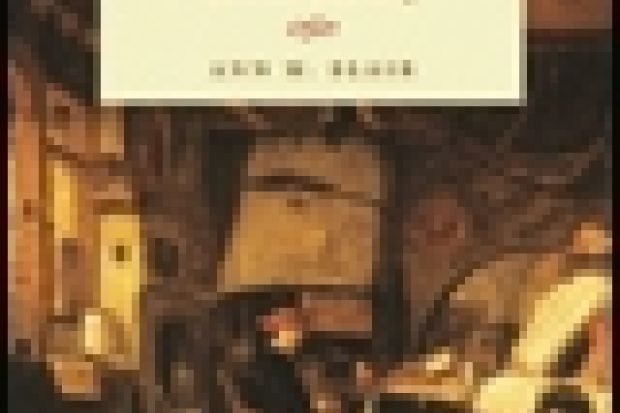Welcome to the 17th century. If you are reading this review of Ann Blair's timely new book, it will be because you agree that there is indeed "too much to know". The review is, after all, a late 17th-century invention for knowing about a book - or claiming to know about it - without reading it.
Since we can't read everything, reviews at least offer a path through what Calvin called "that confused forest of books". The 18th-century Swiss physiologist Albrecht von Haller claimed to have written 9,000 reviews over 31 years. This impressive total comes out to an average 290 books a year, or 24 books a month. Perhaps he skipped the odd page. His labours certainly allowed others to do so.
Information overload via the internet? Don't worry, we've been here before. Not just in early modernity, but in medieval Europe, where it turns out many of our own obsessive methods for managing scholarly information first emerged. As did arguments over whether excerpting, digesting, compiling, abridging and reviewing are forces for good or evil and the end of civilisation. "Index learning" was Jonathan Swift's sneering epithet for the hack-work of compendium-mongers in his satire The Battle of the Books (1704). Well, Swift lost the battle. We are all electronic index-learners now, and Too Much to Know is our prehistory: a saga of human search engines before the digital age.
We cannot all be Pliny the Elder, but the author of Natural History, which compiled ancient information on a miraculous range of topics from around the Roman Empire in the 1st century AD, had certain advantages. To be sure, he was a prodigious note-taker: master of the adnotatione, the pugillare and the excerptum. These, however, he often dictated to his notarius - a secretarial slave. Nor could it have hurt to be read to while eating, travelling or sitting in the bath. (Although, come to think of it, there are always audio books.)
For those lacking Pliny's resources, works of reference came to the rescue. With extensive learning, Blair explains how current concerns over information overload are far from new. From Greek pinakes (bibliographical registers) to medieval raparia (spiritual notes to self) and early modern florilegia and encyclopedias, scholars excerpted, abridged and compiled choice morsels of biblical, ancient and finally modern learning for harried readers from preachers to students, first in manuscript and then in print.
Are such shortcuts good or bad for us? No one has ever been sure. Whether to read intensively or extensively was as urgent a question in medieval China as it is today. Byzantium, medieval Islam and China all generated significant reference cultures, for both administrative and scriptural purposes. As in Western Europe, the objective was to preserve knowledge and transmit it in an ever-more-utilisable form.
What this adds up to is a huge and potentially troubling distribution of authority in our received intellectual culture, which we might call the Wikipedia dilemma: how do you know which digests to trust, and what is lost in digestion? You don't.
Perhaps unsurprisingly, it is the Great Cham and dictionary compiler Samuel Johnson who emerges as one of the great modern champions of information management to reassure us. Johnson's pragmatic typology of reading included what he called hard study, perusal, curious reading and mere reading (browsing). For time-strapped denizens of the review pages, he offers the wisest of rationales: "a book may be good for nothing; or there may be only one thing in it worth knowing: are we to read it all through?"
Say no more.
Too Much to Know: Managing Scholarly Information before the Modern Age
By Ann M. Blair
Yale University Press, 416pp, £30.00
ISBN 9780300112511
Published 17 February 2011
